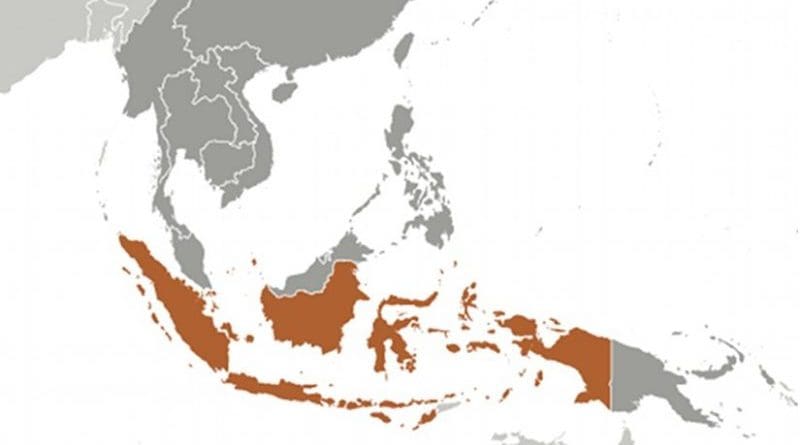Operation Tinombala: Indonesia’s New Counter-Terrorism Strategy – Analysis
By RSIS
The serious threat posed by the self-styled Islamic State of Iraq and Syria (ISIS) has led to an expansion of the Indonesian military’s role in counter-terrorism. This was demonstrated in Operation Tinombala that disabled the Mujahidin Indonesia Timur (MIT) and its leaders.
By Jasminder Singh*
The success of the combined Indonesian military and police operation against the home-grown militants network in Eastern Indonesia, named Operation Tinombala, highlights the new phase of the republic’s counter terrorism strategy. This phase was brought about by the rise of the self-styled Islamic State of Iraq and Syria (ISIS), also known as IS, whose members and supporters possessed well-trained combat skills and pursue a more symmetrical capability against the security forces.
The Indonesian political leadership in the beginning of 2015 tasked the military (TNI) with the responsibility of terminating the threat posed by the MIT, led by the elusive Santoso. In June 2015 the military’s Joint Special Operations Command was launched. The military undertook Operation Tinombala and worked in concert with the police to terminate the group’s top leaders. For all intents and purposes the group has been largely neutralised.
Background to TNI’s Counter-terrorism Role
Southeast Asia’s largest component of ISIS is from Indonesia. ISIS’ Southeast Asian militant arm, known as Katibah Nusantara, is led and manned mainly by Indonesians. Also, the police had not been able to neutralise the militant threat posed by Santoso and the Mujahidin Indonesia Timur (MIT) in the jungles of Central Sulawesi, which had seen the unprecedented participation of foreign Uighur fighters.
With the establishment of Wilayah Philippines by the Islamic State in South Philippines, again, Indonesia’s police-led counter terrorism units have not been very successful in stopping the migration of Indonesian fighters to South Philippines under a new group called the Katibah Al Muhajir. Indeed, the threat has grown to the extent that it is beyond the capability of the police to deal with it alone.
While the police and especially Detachment 88 (Densus 88) performed well to contain the terrorist menace, mostly from the Al-Qaeda linked Jemaah Islamiyah, it is now confronted with serious challenges in facing today’s terrorism threat, which has become more symmetrical in nature – increasingly taking on conventional warfare tactics as it grows in resources. The police also faced public criticism whenever mistakes in field operations came to light.
Sceptics have played up the perceived failure of the police to detect the return of several terrorists, including Dulmatin and Abu Dujana from abroad, and even attributed this to the success of the jihadists in revenge killings of more than 40 police officers.
It is against this backdrop that the Indonesian military, especially the army, started playing a bigger counter-terrorism role, in collaboration with the police, to protect the country.
Military’s Expanded Role
A breakthrough in the military’s expanded role came with the placement of a senior military officer in the National Counter-Terrorism Agency (BNPT) in January 2011 which had, until then, been led by a police officer. Major General Agus Surya Bakti served as the deputy in-charge of deradicalisation from January 2011 to October 2015. Since then, there has been a gradual increase in the military’s role in counter-terrorism operations in Indonesia.
In September 2013, the army was allowed to assist the police by collecting information on terrorist activities domestically. In March 2015, military personnel began counter-terrorism training with the police, followed by the launching in June 2015 of the military’s Joint Special Operations Command. That ended the police monopoly in counter-terrorism that has been in place since 2002.
A key factor leading to rising joint army-police counter-terrorism operations in Indonesia is the manifold capabilities of the army that were built over the years. The growth of home-grown terrorists targeting Indonesians has propelled the military to the forefront of counter-terrorism.
The military’s territorial structure, right down to the remotest village, accords it a unique resource. The military’s all-round strength in counter-terrorism in the past and its possession of well-trained combat units, supported by good intelligence, are strong factors putting it in good stead for deployment in counter-terrorism duties.
The military’s experience in counter-terrorism, its proven assets in training, experience and intelligence in counter-terrorism, its legal mandate to participate in counter-terrorism operations and the rising new terrorist threat to national security, are the key factors that have led to the military’s increasing role in counter-terrorism compared to the past.
Trailblazing Army-Police Cooperation
The success of Operation Tinombala, significant for trailblazing a major joint army-police counter-terrorism operations – the first since 1998 – showed how joint army-police operations can effectively deal with the threat posed by the quick-morphing threat of terrorism in the country.
The past reservations about the expanded role of the Indonesian military and uncertainties over what role it should play in the present security climate have been largely dissipated by Operation Tinombala’s success. It is also due to the realisation that terrorism is posing an existential threat to the state and society. Through a whole-of-government approach, especially army-police collaboration in counter-terrorism, Indonesia’s security can be assured, especially in neutralising ISIS.
*Jasminder Singh is a Senior Analyst with the S. Rajaratnam School of International Studies (RSIS), Nanyang Technological University, Singapore.

